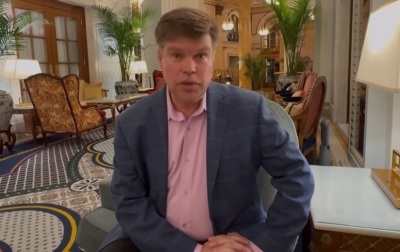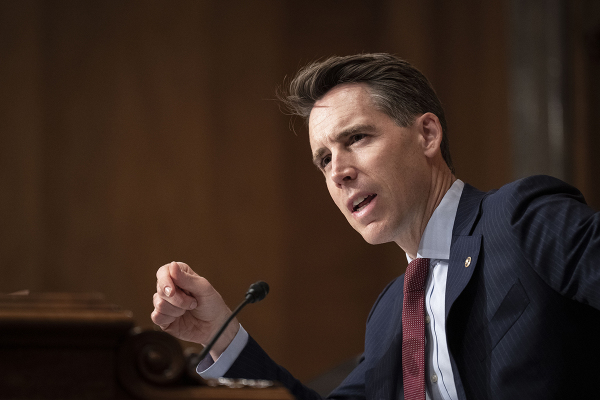Democrat presidential candidate Jason Palmer wants 'religion to come back into public life'

CP: Do you agree with the narrative that … has emerged in recent years or probably … accelerated in recent weeks that Christian conservatives, people who prioritize … the right-to-life issue and also who might say that their rights come from God are Christian nationalists? And how do you define Christian nationalism?
Palmer: My uncle is a Baptist minister, and I would say I'm very familiar with fundamental Christianity because he is not the only person in my family who ... would check the box to say that they are a fundamentalist Christian. I think that you can be a fundamentalist Christian and a patriot without being a Christian nationalist, as you just were describing.
So Christian nationalism is a movement that is trying to ... make Christianity the national religion, wants to convert everyone to Christianity ... is focused on things like it says 'In God We Trust' on our money and that there's a chaplain who actually provides services to Congress. I don't believe in that. I believe much more strongly in the ... Establishment Clause of the First Amendment that the government shall make no law respecting the right of religion one way or the other.
That's a very core American value from the founders that I think is essential, and I think every Christian should have the right to practice their religion the way they want, but they should not try to use government to force Christianity on others.
CP: Are you in favor of removing 'In God We Trust' from the currency?
Palmer: No. I think it's a good tradition, and I would keep it on there because I generally look more favorably on people who have religious values and practice religion. Religion has proven, and Christianity specifically or Judeo-Christian religions, to be a great way to establish stability in people's lives. It encourages the building of strong family units.
People have gotten over alcoholism because of organizations like [Alcoholics Anonymous] that actually have Christianity as part of their core system, I'll call it. And I think the government has for too long, actually, I would even say, tried to drive religion out of public life. And if I were elected president — and this is partly why I mention in every interview that I'm a Quaker — that I would allow religion to come back into public life, displays of religion but not requiring everybody else to practice religion.
Like for example, I would love to host a Jeffersonian Dinner at the White House and invite leaders from the 12 largest religions and denominations in America to dine with me and talk about how ... religion is important in America. ... But we need to restore the proper balance here where religion is a positive but not forcing it on people who don't want religion.
So, for example, it would be important that one of those 12 people who are there at the dinner is actually representing the atheists of America or representing the agnostics of America. These are ... belief systems, not my belief system, but they should be respected and tolerated just as we Christians want to be respected and tolerated.
CP: Do you think the Christian nationalism label is being used as a boogeyman to shame Christians not to vote their conscience?
Palmer: It really depends. If someone was kind of throwing the term around "Christian nationalist,"... I would say I don't like labels like that. Like, what of their beliefs is causing you to say that? If it's that they're a patriot ... there's nothing wrong with being a patriot. If they're a Christian, there's nothing wrong with that either. In fact, that's a positive. But if they're trying to force their religious beliefs on other people, that's where I draw the line. That's not a philosophy that I believe in.
Ryan Foley is a reporter for The Christian Post. He can be reached at: ryan.foley@christianpost.com





















